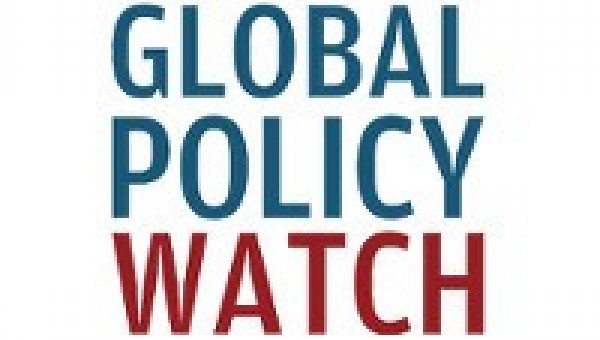News

By Sarah Dayringer
The United Nations – a 70-year-old institution – has reached an inflection point and like other institutions, is facing challenges in rapidly demanding times, challenges to which it must adapt in order to survive. Some Member States are asking if this important institution will maintain its relevance and credibility. They’re asking whether the UN development system will be able to be country-led and to deliver to all countries, and in particular demonstrate its commitment to implementing the 2030 Agenda for Sustainable Development.
These concerns are important for all actors, including Civil Society Organisations (CSOs) that have demonstrated their commitment to the 2030 Agenda for Sustainable Development, the Sustainable Development Goals and the financing of development. They will play a leading role in implementation and monitoring progress on the ground at all levels and in diverse country contexts. However, the profile of the process, around which the UN development system is being analysed, risks being inconspicuous to CSOs.
Guiding the UN development system’s future, is the Quadrennial Comprehensive Policy Review (QCPR). To assist this process, ECOSOC, in resolution 2014/14, established a transparent and inclusive “dialogue on the longer-term positioning of the United Nations development system in the context of the 2030 Agenda for Sustainable Development, “including inter-linkages between the alignment of functions, funding practices, governance structures, capacity and impact of the United Nations development system, partnership approaches and organizational arrangements,” which marked the first time ECOSOC was mandated to take a more in-depth look at the UN development system. The first phase of the dialogue assessed the UN development system as a whole. Findings concluded that there is an urgent need to reinvigorate the UN development and was stated in a recent briefing that “business as usual is simply not credible.”
In order for the dialogues to achieve the second phase objective: “to develop concrete proposals and options for strengthening the UN development system in response to the requirements of the 2030 Agenda for Sustainable Development,” the profile and importance of this process should be raised to include experts from civil society, governments, academia and international organisations. For this reason, ECOSOC appointed an Independent Team of Advisors to assist in positioning the UN development system. The work of the Independent Team of Advisors will conclude in June 2016, ending the second phase of the ECOSOC dialogue. The outcome will set the stage for the General Assembly deliberations during the 2016 Quadrennial Comprehensive Policy Review (QCPR) of United Nations Operational Activities for Development.
The UN development system will also be the subject of the ECOSOC Operational Activities for Development segment taking place at the United Nations Headquarters on 22-24 of February, 2016. The programme will focus on policy programming and operational cooperation and coordination in the UN development system. The latest programme is available online. The key document for this segment is the latest report of the Secretary General on the implementation of the QCPR.
